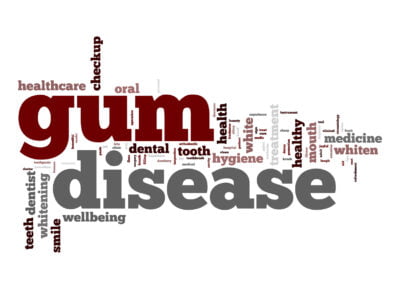 Gum disease is a serious sickness that can lead to loss of teeth if left untreated. Additionally, researchers have linked gum disease to other serious conditions, including heart attack, stroke, diabetes, and pre-term birth. Despite these serious consequences, recent studies by the Centers for Disease Control and Prevention estimate that almost half of the U.S. population over the age of 30 suffer from some form of periodontal (gum) disease.
Gum disease is a serious sickness that can lead to loss of teeth if left untreated. Additionally, researchers have linked gum disease to other serious conditions, including heart attack, stroke, diabetes, and pre-term birth. Despite these serious consequences, recent studies by the Centers for Disease Control and Prevention estimate that almost half of the U.S. population over the age of 30 suffer from some form of periodontal (gum) disease.
But you don’t want to be a statistic. You care about your teeth and gums, and wish to do everything possible to maintain good oral health. Of course, we at the Yuba City Dental Group want to support that desire to the best of our ability.
So, what can help you prevent gum disease from ever developing in the first place? Let’s discuss some of the risk factors, as well as some strategies for prevention.
Risk Factors
The bacteria found in plaque are the main culprit behind the development of gum disease. However, the following diseases, medications, and oral habits can increase your risk for developing gum disease, or worsen the effects. They include:
- Your genes: You may be more likely to develop periodontal disease due to a genetic predisposition. But even if this is the case, a good oral hygiene routine will protect you.
- Smoking and tobacco use: Tobacco use in any form increases the risk of peridontal disease. The longer and more often you smoke or chew tobacco, the higher the risk. Additionally, smoking intensifies the effects of the disease and may make you resistant to treatment.
- Teeth that are out of alignment: This condition may make it more difficult to keep your clean, leading to plaque and tartar formation.
- Braces or bridgework: Orthodontic devices like braces or bridges also make teeth more difficult to clean.
- Stress: Stress weakens your immune system, making periodontal disease more difficult to treat.
- Hormone fluctuation: Puberty, pregnancy, and menopause influence the levels of certain hormones in the body, increasing the risk for developing gum disease.
- Medication: Your doctor may prescribe certain drugs that contribute to dry mouth or cause the gums to enlarge. These side effects increase the risk of developing gum disease.
- Disease: Diabetes, rheumatoid arthritis, HIV, and other diseases increase the risk of developing and controlling periodontal disease.
- Poor nutrition: A lack of proper nutrition contributes to a weakened immune system, and a Vitamin C deficiency may cause bleeding gums.
Preventative Strategies
 The best protection against developing gum disease is a good routine of oral hygiene. Make sure to brush at least twice a day, and floss at least once a day. (Ask your dentist to demonstrate the proper brushing and flossing technique on your next visit, to make sure you’re doing it properly.) Additionally, you should make sure to see your dentist regularly for examinations and professional cleanings (at least twice a year if possible).
The best protection against developing gum disease is a good routine of oral hygiene. Make sure to brush at least twice a day, and floss at least once a day. (Ask your dentist to demonstrate the proper brushing and flossing technique on your next visit, to make sure you’re doing it properly.) Additionally, you should make sure to see your dentist regularly for examinations and professional cleanings (at least twice a year if possible).
Additionally, you should avoid using tobacco and hold to a nutritious diet. Working with your doctor to develop a regular exercise plan will improve your overall health and help reduce stress. Additionally, an open dialogue with your primary care physician and dentist can help you combat other factors that increase your risk for developing gum disease.


